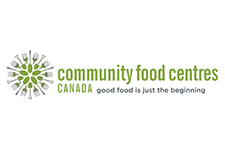Discover financial empowerment resources
Discover financial empowerment resources
As the growth in the number of renter households in Canada outpaces the growth of homeownership,2 tenants, property owners and researchers are sounding the alarm that more can and must be done to recognize the right to adequate housing in Canada. Central to these calls is a better understanding...
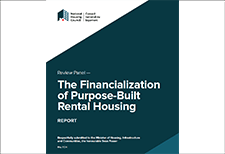
The disability tax credit (DTC) is an important program for those facing severe and prolonged physical or mental impairment. Some individuals face unique barriers when it comes to completing their application and claiming the credit. On this page, the CRA is correcting some of the most common myths...

Between 2016 and 2021, B.C. lost nearly 100,000 rental units priced below $1,000 monthly. For every new affordable rental home built in B.C., four more are lost to investors, conversions, demolition and rent increases, and new affordable units do not compensate for the loss of existing ones. The...
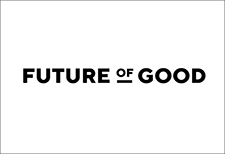
Every year, scammers take advantage of income tax filing season to try to trick Canadians into divulging sensitive personal information that scammers can use to commit fraud or into sending money to pay off fictitious "debts". How to spot most tax season scams There are often red flags that the...

Banks in Canada are working around the clock on the prevention and detection of fraud and cyber security threats and work closely with each other and with bank regulators, law enforcement and all levels of government to protect the financial system and their customers from financial crimes. There...
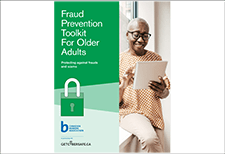
This CRA site has information on what Indigenous Peoples should know about the tax return they send to the Canada Revenue Agency (CRA), and how that return can result in various benefit payments. There's also information on available tax filing...

The Canada Disability Benefit is an opportunity to guarantee that people with disabilities can live a life with dignity and have an adequate standard of living. For the new Canada Disability Benefit (CDB) to meet its goal of financially supporting and reducing poverty of people with disabilities,...

Canada's homeless encampments are a national human rights crisis. A growing number of people in Canada are having to live in tents or informal shelters to survive due to a lack of affordable housing, limited support services, and nowhere safe to go. Recognizing the severity of this crisis, the...
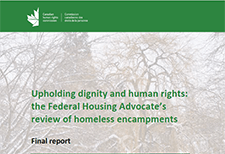
March is Fraud Prevention Month in Canada. This year's theme is "20 years of fighting fraud: from then to now", and will help Canadians recognize how fraud has evolved over the years. Canadians are encouraged to use learn more about common frauds and scams, use these promotional materials shared...
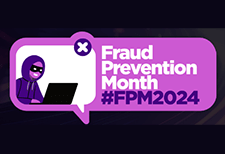
The Government of Canada has created a digital toolkit for Black History Month 2024. Click on "Access this resource" to download a Black History month poster, a virtual background for video...
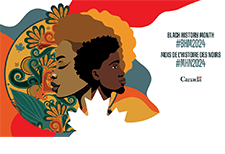
The Government of Canada has put together statistics highlighting sociodemographic diversity, educational attainment, labour market participation and business ownership and income and inequality for Black History...

The SimpleFile by Phone service, formerly called File my Return, allows eligible individuals to auto-file their income tax and benefit return over the phone. It is free, secure, and easy to use. There are no forms to fill out or calculations to do. You do not need to speak to an agent to use this...

The report presents a summary of CDSP annual statistics up to the end of 2022. These include the RDSP take-up rates, the number of RDSP beneficiaries, and the values of CDSB, CDSG, contributions, and total assets. Starting in 2024, the program will release comprehensive CDSP statistics on an annual...

This publication is an outreach product to help promote the program "How to open a Registered Disability Savings Plan (RDSP) for yourself or a loved one with a disability". This infographic was created in response to feedback from stakeholders and was designed in collaboration with experts in...

Reaching Home: Canada's Homelessness Strategy is a community-based program aimed at preventing and reducing homelessness across Canada. This program provides funding to urban, Indigenous, rural and remote communities to help them address their local homelessness needs. Click "Access this resource"...

The Canada workers benefit (CWB) is a refundable tax credit to help individuals and families who are working and earning a low income. The CWB has two parts: a basic amount and a disability supplement. You can claim the CWB when you file your income tax return. Learn more including eligibility...

This is the 2023 report on the progress of Opportunity for All – Canada’s First Poverty Reduction Strategy (PRS). While COVID-19 still threatens communities in Canada and around the world, the public health measures have largely been lifted. Temporary economic measures have also ended. At the...

Increasing Access to Benefits for Peoples with Disabilities project - Insights and Recommendations This 60-minute webinar for front line practitioners and government agencies shares the insights and recommendations from the three-year Increasing Access to Benefits for Peoples with Disabilities...
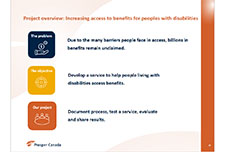
In 2014, the government of BC declared October RDSP Awareness Month to help raise awareness about the Registered Disability Savings Plan (RDSP). The RDSP is the world’s first savings plan specifically designed for people with disabilities. Even with little to no personal contributions, there are...
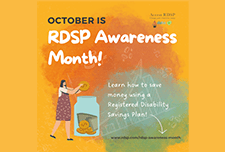
Food Banks Canada's all-new Poverty Report Cards initiative grades how poverty reduction efforts are going in the provincial, territorial, and federal governments. The report cards will help policymakers and decision-makers at all levels of government gauge their performance in the fight against...
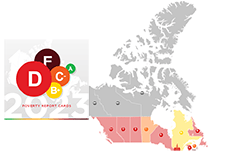
It's never too early or too late to learn about your retirement options and plan for your future. Using the Government of Canada's newly launched Retirement Hub, find out about public pensions, when to collect them and tips to consider for your retirement income. Get started using their...
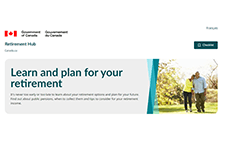
The Office of the Superintendent of Bankruptcy (OSB) is continuing its efforts to help Canadians experiencing serious financial difficulties find the right debt solution. These efforts include increasing consumer awareness about the unregulated Debt Advisory Marketplace and helping consumers...

Between the high cost of living and inflation, many of us are struggling with debt. But with financial advice available everywhere - from your uncle’s friend to social media influencers, it can be easy to feel overwhelmed and hard to know whose advice you can trust. Learning some key warning...

A recent Prosper Canada report shows that Canadians with low incomes are increasingly financially vulnerable but lack access to the financial help they need to rebuild their financial health. People with low incomes are unlikely to find help when they need it to plan financially, develop and adhere...
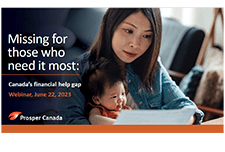
Building the Case provides evidence for the federal government to urgently step up to support single, working-age adults in Canada. This group experiences Canada’s highest and deepest rates of poverty and some of the country’s highest rates of food insecurity. By analyzing publicly...
